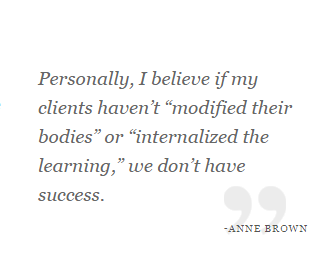
Knowing something is one thing and putting it into action is another. Recovery is an area where the action part is paramount! So how do we do this? How do we take what we learn from books, talking and screens and put it into action?
Practice Saying No
Personally, I believe if my clients haven’t “modified their bodies” or “internalized the learning,” we don’t have success. I have also heard “I don’t feel good enough about myself to say ‘no’ to what is bad for me and ‘yes’ to what is good for me.”

Here are some simple exercises/assignments you can do to increase your chances for success, regardless of where you are on the self-esteem chart. Invite a good friend (who also wants to have success in life) and make a commitment to practice a few times a week.
Let’s start with the simple assignment of saying “no.” In order to accomplish this exercise, we will also include making requests. Begin with simple requests like “please get me a glass of water.” The response has to be “No, thank you for asking.” After you have performed this exercise for five minutes each way, report to each other what happened. What sensations did you have in your body? What chatter tried to stop you? Repeat this exercise until your body is at least neutral and hopefully comfortable.
Raise the Bar
After you get comfortable with saying “no” to a simple task like get me a glass of water, start to raise the bar with triggering topics. The most difficult topics for most are sex and money. You will likely need many hours of practice and repetitions on these more challenging topics. As you start to feel more comfortable, have the requester add real-life drama and guilt to the request. “I need you to give me money; I haven’t eaten in a week.” The decliner can NEVER use a story to support “No, thanks for asking.”
The guidelines for saying “no” are:
- No is a complete sentence.
- No stories allowed.
- Be grateful for the request that allowed you to practice saying no.
It is very important to find out just how paralyzed you are by the “can’t say no” phenomena. Write down every “but” that comes up for you on why it is difficult. Remember: “Takers” know exactly what to say to trigger you into to saying yes…when you really mean no. Although I want you to look at the blocks, I also want you to keep practicing.
One More Success Tool
Being able to say “no” to what doesn’t support you – and “yes” to what does – gives you another tool for success. When you first start saying no, there can be an awkward/beginner quality to your response, but as you practice, you’ll become more competent.

I have practiced this exercise for many hours with others who are seeking dignity in their lives – and it works. It is a great tool for future challenges. If you know you are going into career/financial negotiations, your ex is going to ask you to do something you don’t want to do, a friend is going to ask you to party when you have stopped partying, boundaries for family members and friends, whatever the challenge, call your exercise friend and practice. Ask your friend to make the requests you anticipate with lots of guilt content and just keep saying: “No, thanks for asking.”
I believe you can override the blocks with constant practice and repetitions. While your partner is practicing saying “no,” you will obviously be making requests. Observe how that feels for you and what you notice about your ability to make requests. Again, this is a great tool to anticipate future conversations where you will need to make requests. When you are learning to play tennis, you need to hit thousands of forehands for your body to internalize the motions. It is the same here. When you start hitting forehands, you may not have a lot of confidence in your ability. As you practice, however, your confidence grows. Watch your confidence grow as “no” just flies off your lips.
Self-Esteem Boost
I believe you can “trick” your body into overriding the “I am not good enough” or “I have to avoid conflict” thought process just by doing this exercise over and over again. I’ve also observed how this powerful tool builds self-esteem. Once you say “no” to driving someone else’s bus, and yes to driving your own, the self-esteem and confidence follow.
When working with people, I may tweak the “No, thanks for asking” a bit – just so it doesn’t sound so robotic – but the guidelines remain the same.
Stories to justify “no” give “takers” ways to confuse you and throw you off your path. The power of this exercise is learning “I am the master of my ship and I determine when we take a left turn and when we take a right turn!” “Takers” think they are the master’s of everyone’s ship, so you can’t give them an opening to grab the wheel.
People who are the master’s of their own lives respect others who are the same. Saying “no” to “takers” may be difficult at first, but you will eventually weed them out of your life. They are only interested in what you can do for them, so they’ll soon be off looking for their next victim.
Remember these words: Takers are interested in what they can manipulate you to do for them – they are not interested in you!! Every minute of every day, it is ultimately your choice: master of your universe or slave to someone else’s?
This article was originally published on Recovery.org



 Facebook
Facebook LinkedIn
LinkedIn Twitter
Twitter Youtube
Youtube StumbleUpon
StumbleUpon
Leave a Reply